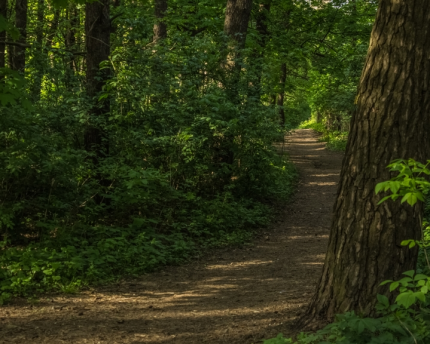Are groups improving access to nature?

-- Mary Pelletier, Macon, Georgia
No one doubts that time spent outdoors in nature is time well-spent, especially in this age of smartphones, tablets and laptops vying for our attention. Research consistently shows higher levels of health and well-being when people have access to parks, gardens, greenways and other natural areas.
According to the Children & Nature Network, time in nature gives kids a wide range of benefits including reduced nearsightedness, increased Vitamin D levels, reduced risk of obesity, improved relationship skills and reduced levels of stress, anger and aggression.
And it’s not just kids who benefit. “Access to nature has been related to lower levels of mortality and illness, higher levels of outdoor physical activity, restoration from stress, a greater sense of well-being, and greater social capital,” reports the nonprofit American Public Health Association. The group is working to persuade public health practitioners and health professionals to get more Americans, young and old, off their screens and outside to experience the physical and emotional benefits of breathing fresh air and enjoying the sights and sounds of the natural world.
The Sierra Club launched its Nearby Nature campaign in 2017 to help build “a more equitable, just and inclusive movement by increasing access to the outdoors.” The program engages youth and communities to explore, enjoy and protect parks, waterways and natural spaces in and around urban areas.
“Communities that have been historically underrepresented in the environmental movement are often the same communities that experience limited access to nature and face the greatest economic, social and personal insecurity today,” reports the Sierra Club. “Nearly two-thirds of the U.S. population does not have close-to-home access to nature, with the greatest disparities found in low-income neighborhoods and communities of color.”
Another way to get more of us outside is by making it easier to score a last-minute campsite. Alyssa Ravasio, founder of the startup Hipcamp that links landowners looking for revenue streams with campers, teamed up with activists and outdoor gear makers in 2015 to launch the nonprofit Access Land. The group lobbies for opening up real-time campground availability information so more of us can camp on our public lands without reserving six months in advance or winging it and risking that no sites are available after driving for hours into relatively remote areas. Upward of 50 organizations (Sierra Club, the American Alpine Institute, Outdoor Afro) and companies (REI, Mountainsmith, Huckberry) are supporting Access Land’s push for “open data” on campground openings.
“Open Data is important,” Access Land states. “It's the reason we can access weather data on our phones, see bus timetables in Google Maps and search flights from all airlines in one place.” The group wants America’s public parks to be equally as accessible—and earlier this year celebrated when the federal government and the state of California committed to requiring open standards on their contracts with campground reservation vendors. On the heels of this success, Access Land is stepping up efforts to get statewide land management agencies in the nation’s other 49 states to follow suit and make their campground availability freely accessible to the public.
Resources:
American Public Health Association
Related:
Are e-bikes better for the environment?
This column was reprinted with permission. EarthTalk is produced by Roddy Scheer and Doug Moss and is a registered trademark of the nonprofit Earth Action Network. To donate, visit www.earthtalk.org. Send questions to: question@earthtalk.org
Like us on Facebook and tell us what you think.

